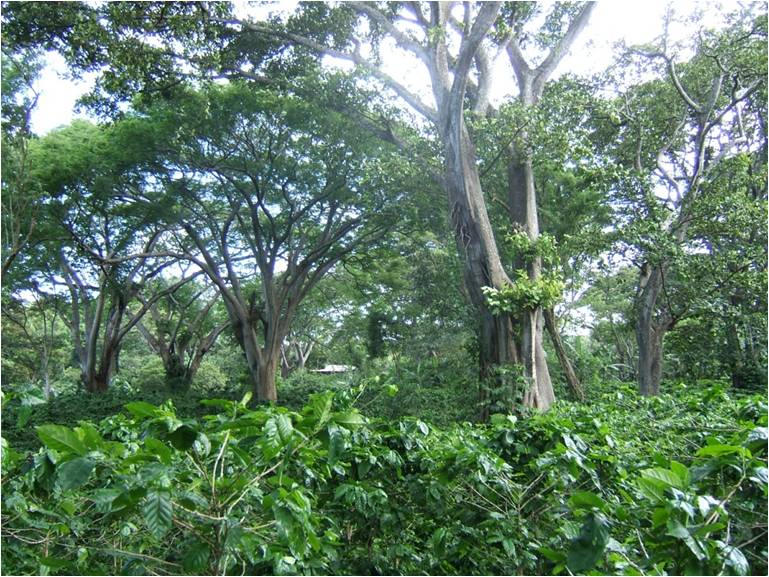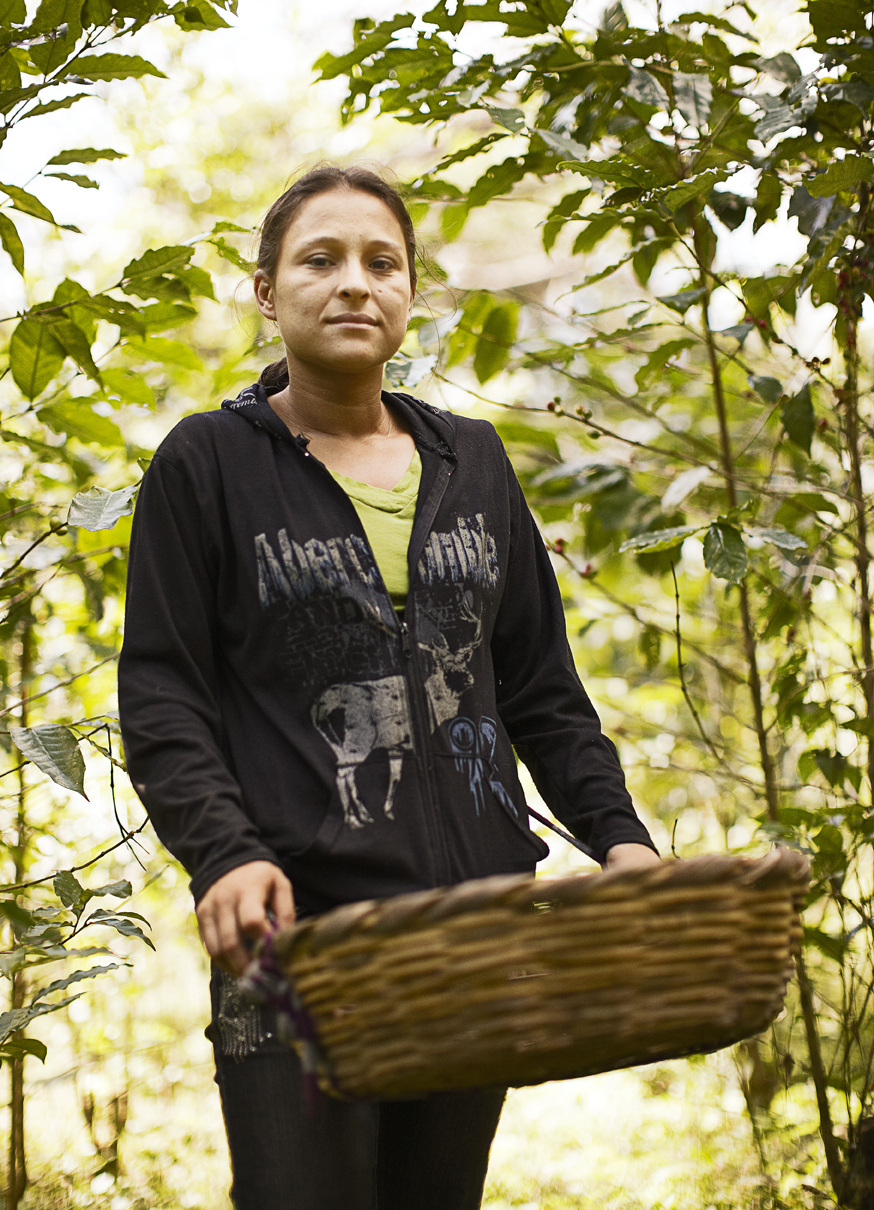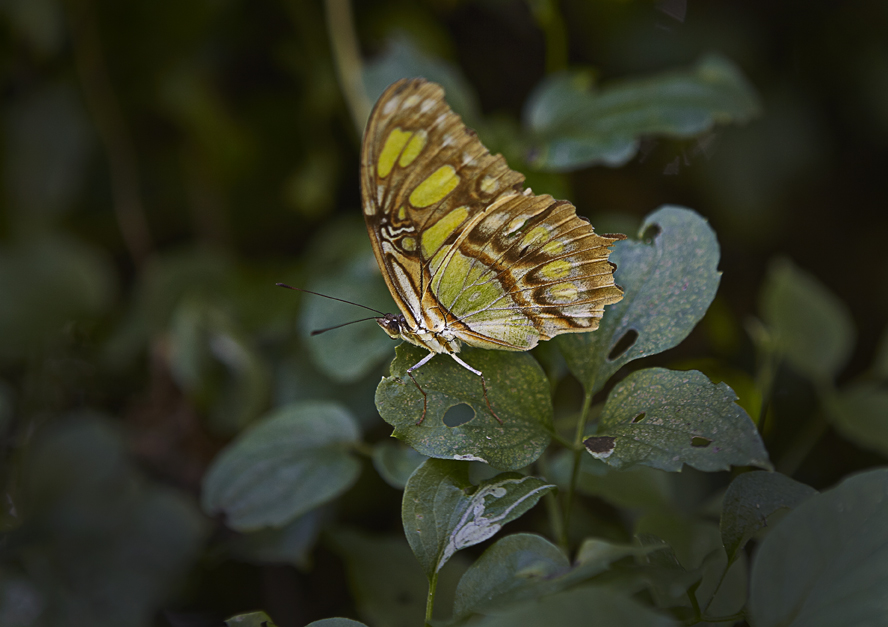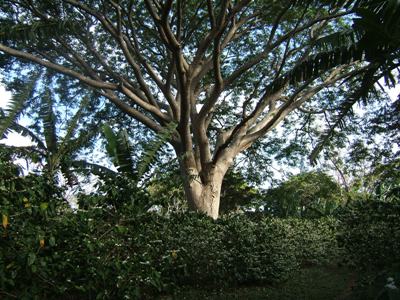A guest post from Jefferson Shriver and Gabriela Narvaez are Owners of Gaia Estate, Diriamba, Nicaragua:
The planet is becoming an increasingly inhospitable place for agriculture. This is especially the case with full sun, rain fed monocrops grown in the tropics where pounding rain, high winds, and long dry periods are an annual experience.
Fortunately, coffee is a forest crop by nature, and forests can create natural buffers for such inhospitable conditions. As organic, agro-forestry farmers, we just help that process along a bit.

At Gaia Estate in Nicaragua, coffee was first grown here over 100 years ago by simply clearing a bit of the underbrush from a natural forest. The place looks much the same today, with over seventy species of trees on 90 acres. A thick blanket of leaf litter covers the ground all year, maintaining soil humidity, preventing erosion, and building up organic matter that our coffee loves. Our three story shade canopy of fruit and forest trees shields the coffee from strong rains and volatile temperatures, and slows the maturation of the coffee beans, giving the coffee more complexity and sweetness. The limes, bananas and avocado intercropped with coffee as that first shade layer give us plenty of fruit year round for our family, workers, and a bit of extra to sell. Most people say they feel they are walking through a park when they come to Gaia. We feel much the same way – like gardeners in a forest – and can’t imagine farming any other way.

We know that Gaia is a refuge for migratory and resident birds, and a host of animals and insects. This is also very important to us. Since assuming ownership of the farm six years ago, we are seeing greater populations of migratory and resident birds, butterflies, lizards, iguana, and rabbits. We’ve even spotted a few deer and monkeys recently, the first to come back to this area in a long time. We don’t have to worry about the risk of worker exposure to poison because we don’t use pesticides or herbicides. The soil is alive with micro-organisms, worms and ants that all co-exist here given we use only organic fertilizer and repellents.

I am hesitant to over-romanticize, however. Annually we apply a half bucket of organic fertilizer to every plant. Compare that to the bottle cap of urea we see our neighbors apply to their conventionally grown coffee plants, and you can see that our production costs can get expensive. All of the coffee cherry residues, horse and cow manure, and fallen branches we convert to charcoal are used to make a rich blend of organic fertilizer. Then we hand weed instead of applying herbicides like Round Up or paraquat. While this is also time consuming and more expensive, it allows us to let tree seedlings – spread by birds and bats throughout the farm – grow back and replenish the agro-forestry system over time. These kinds of practices also generate more employment, meeting a critical need in the local community. Finally, there is nothing easy about regulating the shade of trees 20 meters high. The pruning of branches is necessary to allow some sunlight in for the coffee, and requires careful handling for both the tree and the coffee below.

Not everyone farms this way. As I write, in addition to the songs of at least a half dozen birds, I also hear the whirring of chainsaws in the distance. The value of trees in Nicaragua are calculated when they are horizontal, in board feet, not vertical and alive. Deforestation in Nicaragua, like much of Latin America, continues at a relentless pace. Tragically, most coffee markets do not reward farmers for growing coffee in the shade. There is no market value assigned to shade. Bird Friendly is a small but significant exception to the industry standard. If more people buy SMBC Bird Friendly coffee and demand grows, we would love to share the Birds & Beans and Bird Friendly certified market with our neighbors. After all, we are not an island – what our neighbors are doing ultimately affect our growing conditions and the health of the ecosystem we take care of at Gaia. The orioles and warblers and thrushes, if they could speak to us during their short visits here annually, would probably agree.
Jefferson Shriver and Gabriela Narvaez are Owners of Gaia Estate. Consider a visit to the farm – www.gaiaestate.com